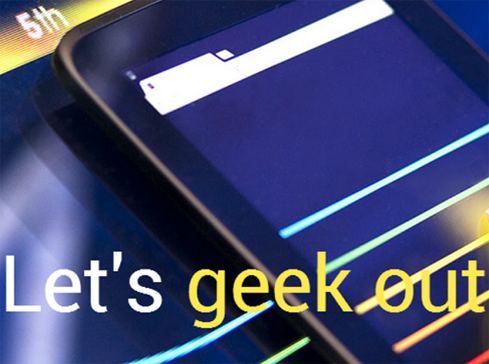Google I/O: A To ZGoogle I/O: A To Z
Google reveals new features coming to Android, as well as several platforms for TV, fitness, and connected cars.


Google I/O 2014: 8 Things To Watch
Google I/O 2014: 8 Things To Watch (Click image for larger view and slideshow.)
Google delivered a stream of new announcements over the course of two and a half hours during its I/O keynote address today. Nearly all the news centered on Android and its derivatives, which include a number of new platforms. Here's a quick rundown of everything Google announced:
Android Auto
Like Apple's CarPlay, Android Auto will let Android owners connect their device to their car and interact with key apps and services. The base functions include the phone, mapping, and music apps, as well as Google Search. Android Auto relies heavily on Google Now, Google's voice-controlled personal assistant. Android Auto will show up in cars from more than two dozen makers beginning late this year.
Android L
Google played coy with the next version of Android during the I/O keynote, referring to the upcoming platform only as "Release L." Google, which uses desserts to nickname the different versions of Android, is set to pick "L" for the next iteration of the platform, but the company didn't say if it will be Lollipop, Lemon Drop, or Linzer Tart. (Most believe it will be Lollipop.) Google did offer a few details about the next generation of Android. To start, Android L has been given a brand-new look thanks to Material Design, which will be used across Google's various platforms. Google also delivers improvements to the system's performance across a wider range of hardware. Last, Google said Android L will bring notable improvements to battery life. Android L won't be available until the fall, though developers will have access to it this week.
[How will Google fight back against its three biggest competitors? Read Google I/O: Pressure Is On.]
Android One
Google wants Android to reach the next billion people. For that to happen, those people must be in emerging markets where devices are cheap. Android One is a reference program that gives equipment makers a base platform on which they can make inexpensive hardware. Android One is targeting India first, with OEMs such as Karbonn and Micromax.
Android TV
Google is going after the living room with Android TV, a new platform that can be embedded directly in TV sets or installed on a stand-alone box. Google already has several TV makers working to put Android TV into their 2015 sets, but stand-alone boxes will be available in the fall. Android TV takes Chromecast to the next level and supports Play Store content directly, without a nearby smartphone or tablet. Further, it supports the Google Play Games platform (and even physical game controllers) for multiplayer gaming. A number of third-party content apps, such as Netflix, are working on their own Android TV apps. Of course, Android TV can be controlled by Android smartphones and tablets.

Samsung Gear Live
Android Wear
The full Android Wear SDK, which has been in preview for several months, will launch on Thursday. With Wear, developers can create apps that function on devices such as the LG G Watch and Samsung Gear Live, both of which were announced today. Most of Wear's functions focus on delivering smart notifications to the watch, but some apps go so far as to allow wearers to order pizza. Much of the interaction is based on voice commands. The two smartwatches can be ordered starting on Wednesday from the Play Store.
Android For Work
IT admins will like this one: Android for Work is based on Samsung's Knox enterprise security platform. It allows businesses to separate corporate from personal information on employee devices. IT will have full control over the business data, including the ability to lock it or wipe it, without touching the personal data. While most of today's announcements require Android L Release, Android for Work will support Android versions back to Ice Cream Sandwich.
Chrome
Google is making its Chrome platform play more nicely with Android. For example, Android devices will be able to push their apps to Chromebooks, which can be used to access and control the apps. Google also talked about Chrome for Education, a new storefront specifically for schools.
Google Fit
Google Fit can be likened to Apple's HealthKit. It is a new platform that will let Android device owners manage their various health and fitness apps and gather all the data in a single place. Developers will be able to add Google Fit to their apps. The SDK will be available in the days ahead.
Google made no mention of Google+, its dead-in-the-water social network, nor did it talk about Google Glass, its polarizing wearable.
While developers will have access to most of these tools and apps within days, most people won't be able to take advantage of them until Android Release L goes live in the fall.
Here's a step-by-step plan to mesh IT goals with business and customer objectives and, critically, measure your initiatives to ensure that the business is successful. Get the How To Tie Tech Innovation To Business Strategy report today (registration required).
About the Author
You May Also Like






